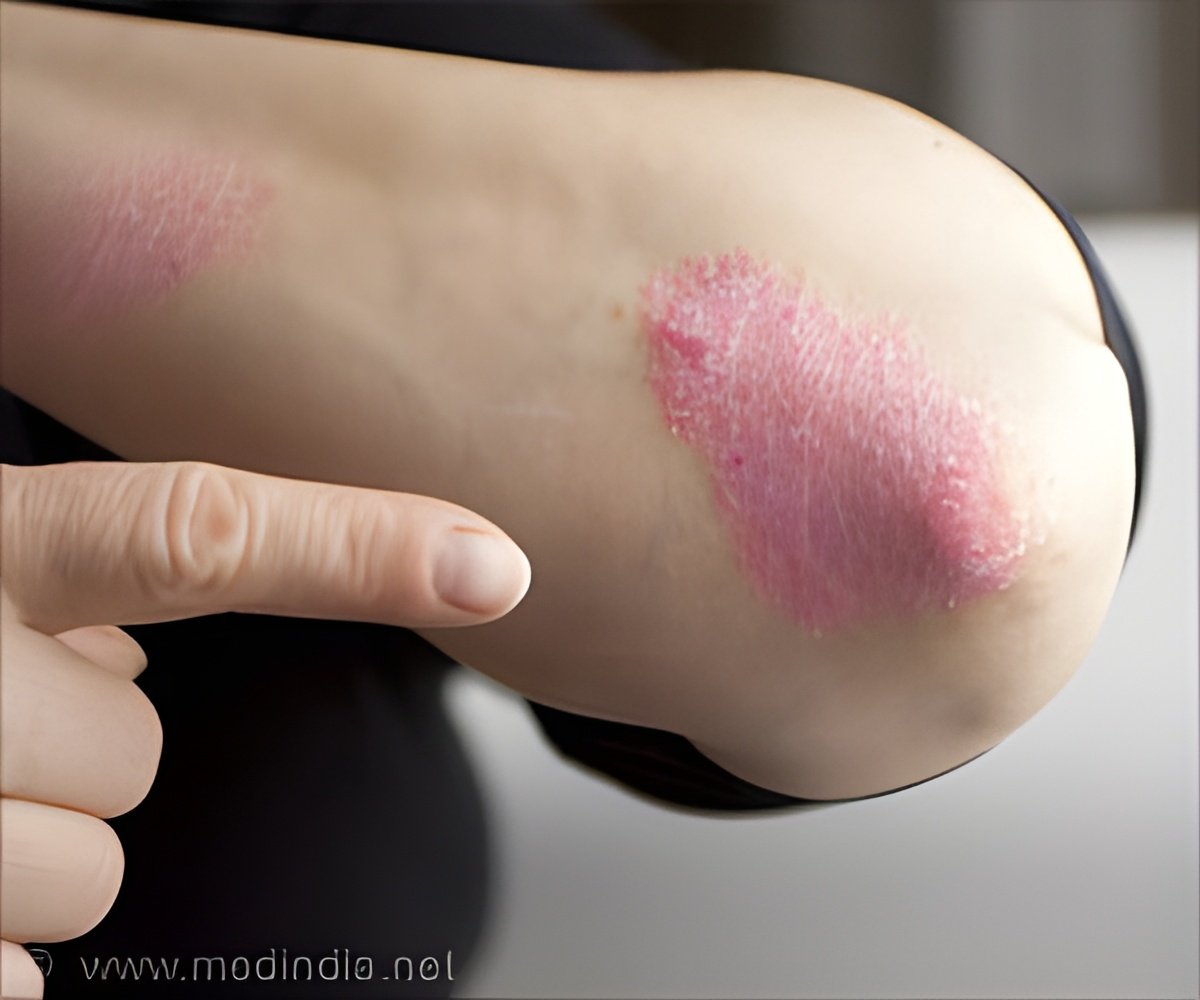Higher BMI (obesity) may contribute to increased inflammation of the skin, which can worsen psoriasis, a common inflammatory skin disease, finds a new study.

TOP INSIGHT
Higher weight may increase the risk of psoriasis. Hence, the treatment and lifestyle interventions should aim at controlling weight for the prevention or treatment of the common skin disease.
Read More..
"Higher BMI may contribute to increased inflammation of the skin, which can exacerbate psoriasis, but it could also be that psoriasis leads to a person being less physically active and thus gaining weight," explains Mari Løset.
She is a medical doctor at the Department of Dermatology at St. Olavs Hospital and a postdoctoral fellow at the Norwegian University of Science and Technology's (NTNU) K.G. Jebsen Center for Genetic Epidemiology.
Løset is part of a team that been involved in a study of the causal relationship between BMI and psoriasis.
BMI stands for body mass index and is a measure of body fat content. It is calculated from a person's height and weight.
Psoriasis is a chronic inflammatory condition of the skin, which causes a red, scaly rash. The cause of the disorder is probably multifactorial, involving both heredity and the environment.
"Self-reported data from two large population surveys in Norway indicate that six to eleven percent of the population may be affected in this country," says Løset.
A study in the city of Tromsø has shown that the incidence of psoriasis was 4.8 percent in 1980, but had increased to 11.4 percent in 2008.
"Similar studies from other parts of the world substantiate the fact that the condition is increasing," says the postdoctoral fellow.
To investigate the causal relationship between BMI and psoriasis, the researchers used a method called Mendelian randomization. It is named after Gregor Mendel, who is known as the father of genetics. According to Mendel's principles of inheritance, whether we inherit a certain variant of genes from our mother or our father is random. Genetic variants are randomly distributed, or randomized, between individuals.
"Mendelian randomization means that nature itself distributes individuals randomly into groups based on genes. This way, we can avoid the results being influenced by external factors," says Løset.
"Our understanding of how genes are related to the disease is increasing at record speed, and in this study, we used known genetic variants as markers for BMI and psoriasis," she adds.
By using Mendelian randomization, the researchers found that higher weight is a contributing factor to psoriasis. They observed that greater BMI increased the chance of getting the disease.
"We calculated that the risk increased by nine percent for each higher whole number on the BMI scale," Løset says.
But the researchers are still uncertain about just how higher weight can lead to psoriasis.
"We still don't know enough about the mechanisms behind this connection. Fatty tissue is an organ that produces hormones and inflammatory signaling molecules, which could be a contributing factor," says Løset.
So far, not much research has been done on whether weight loss can cause psoriasis to disappear, although a few clinical studies suggest the possibility.
Source-Eurekalert
 MEDINDIA
MEDINDIA




 Email
Email








